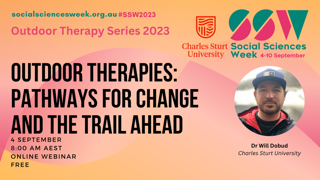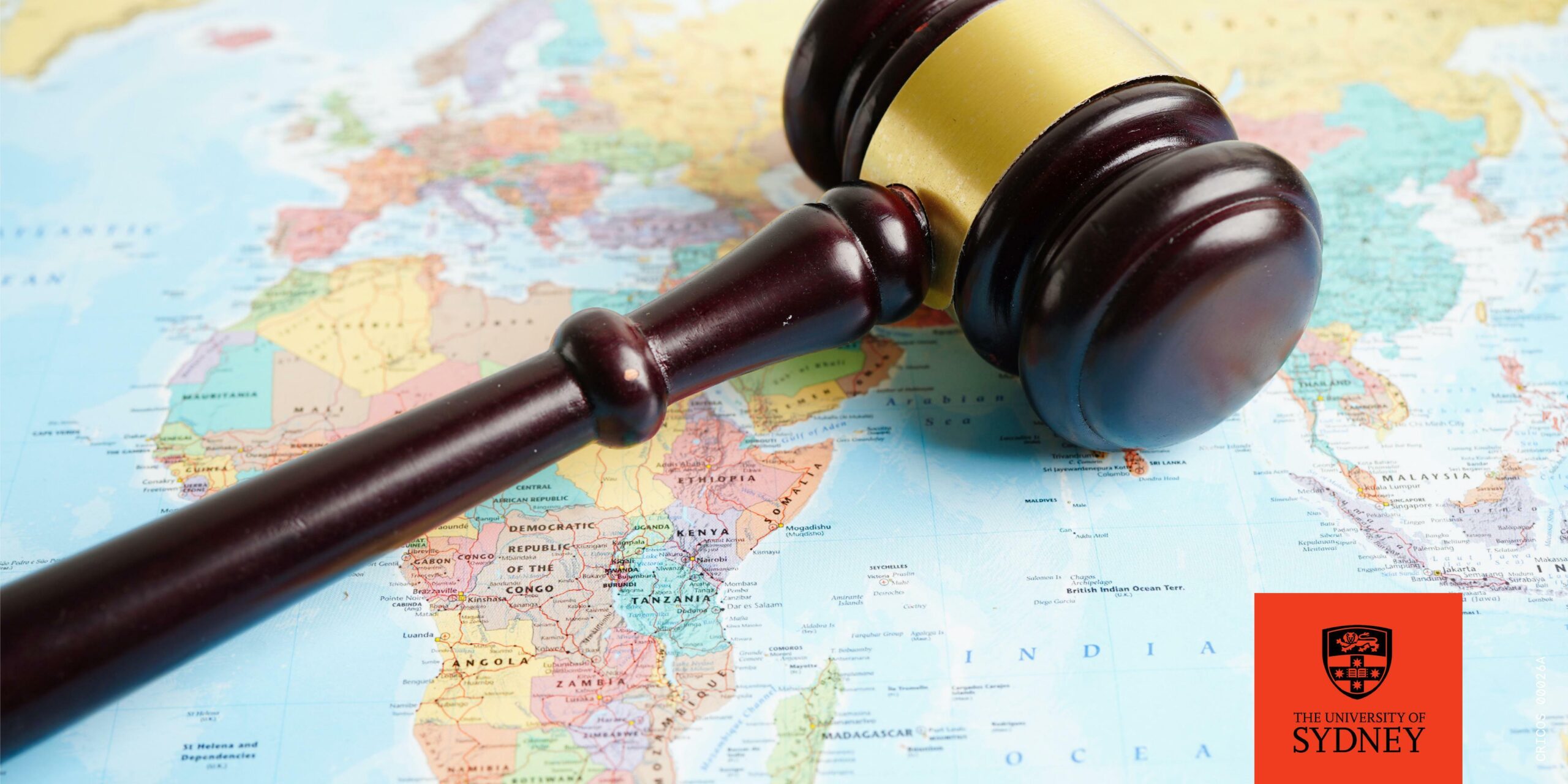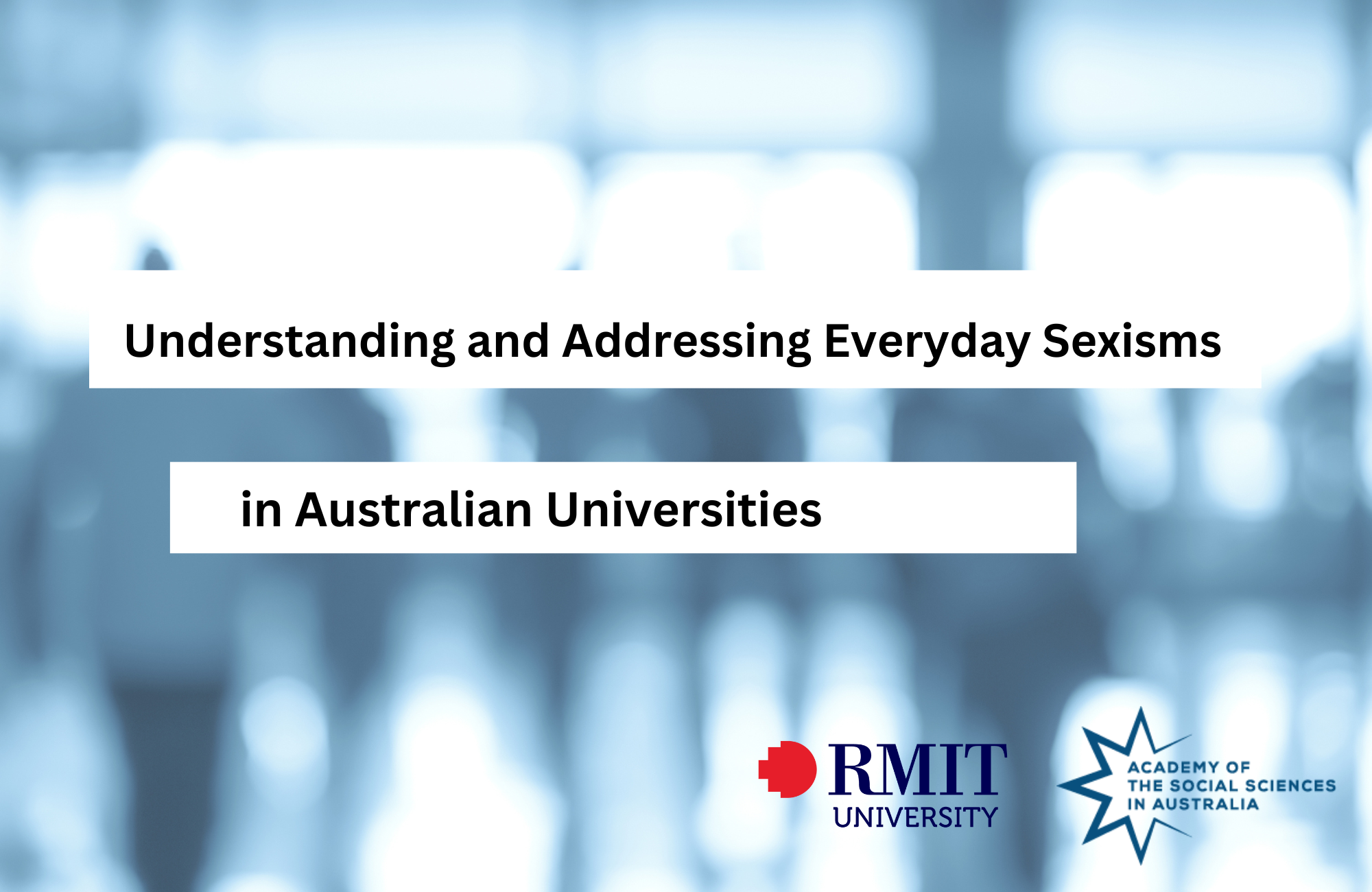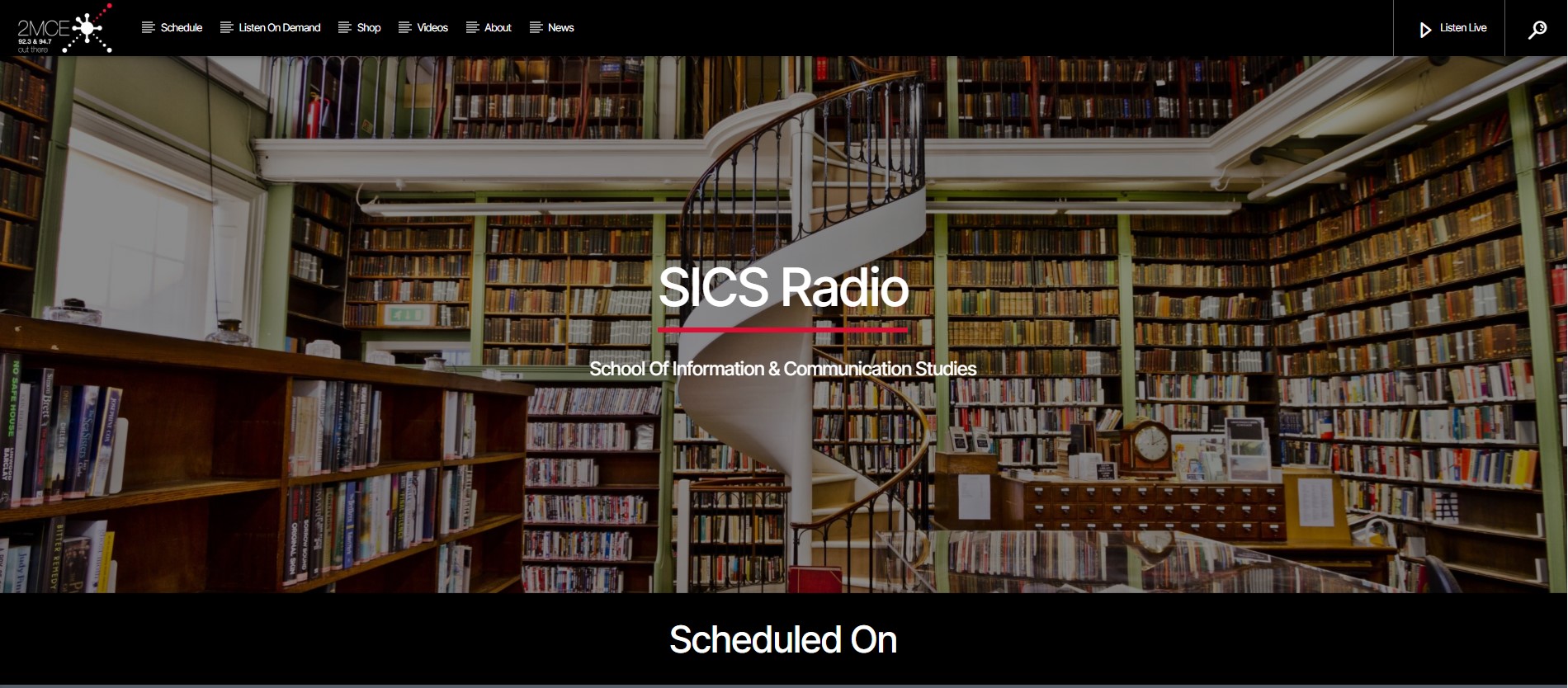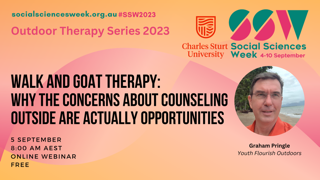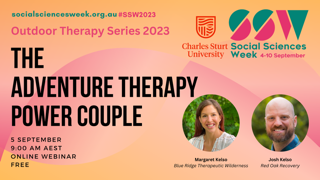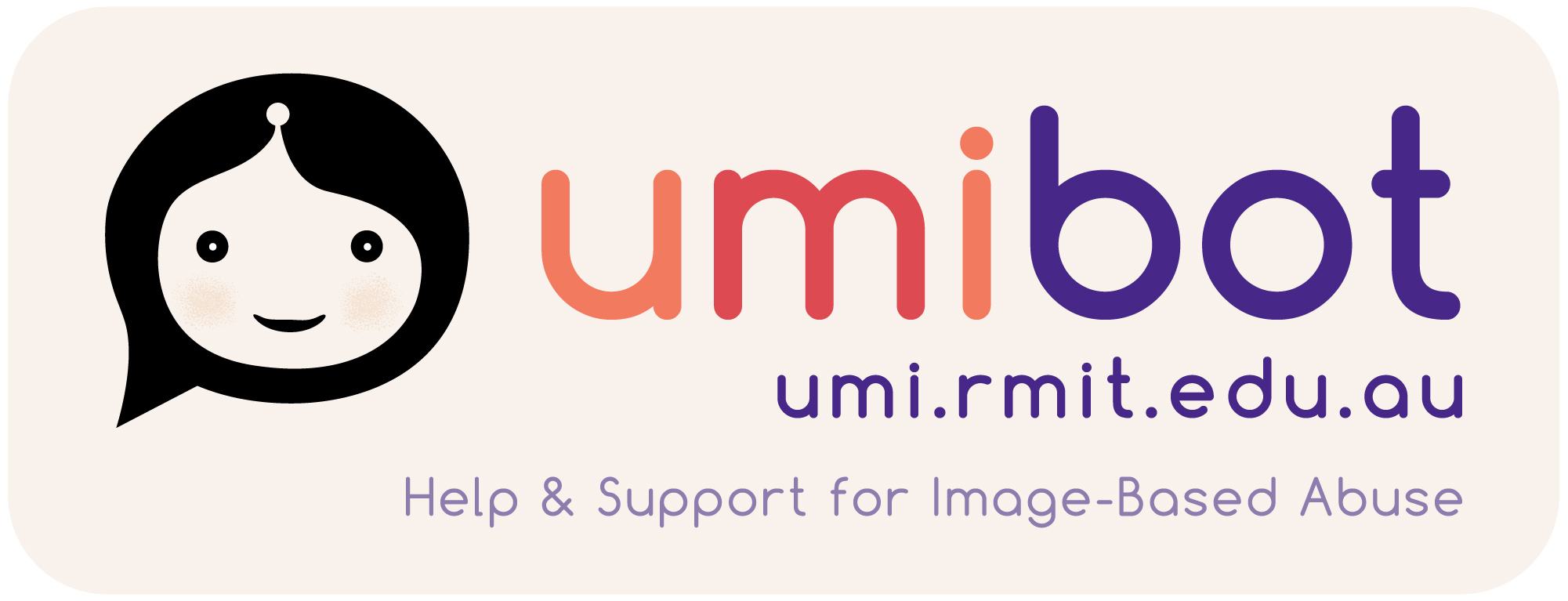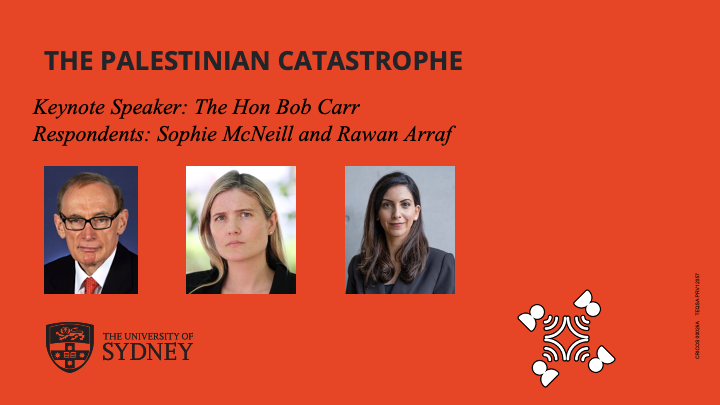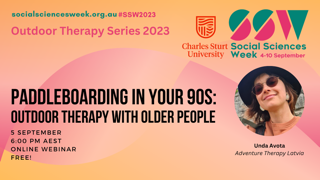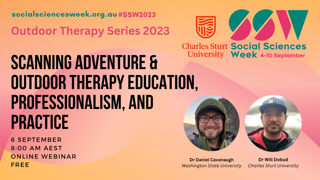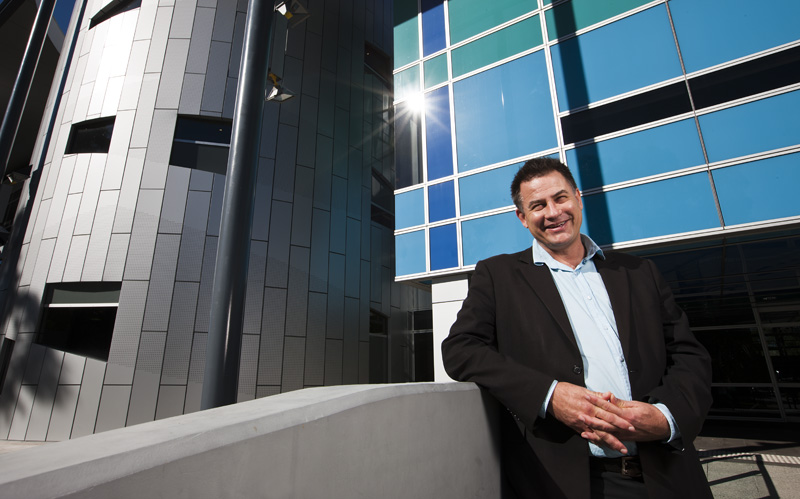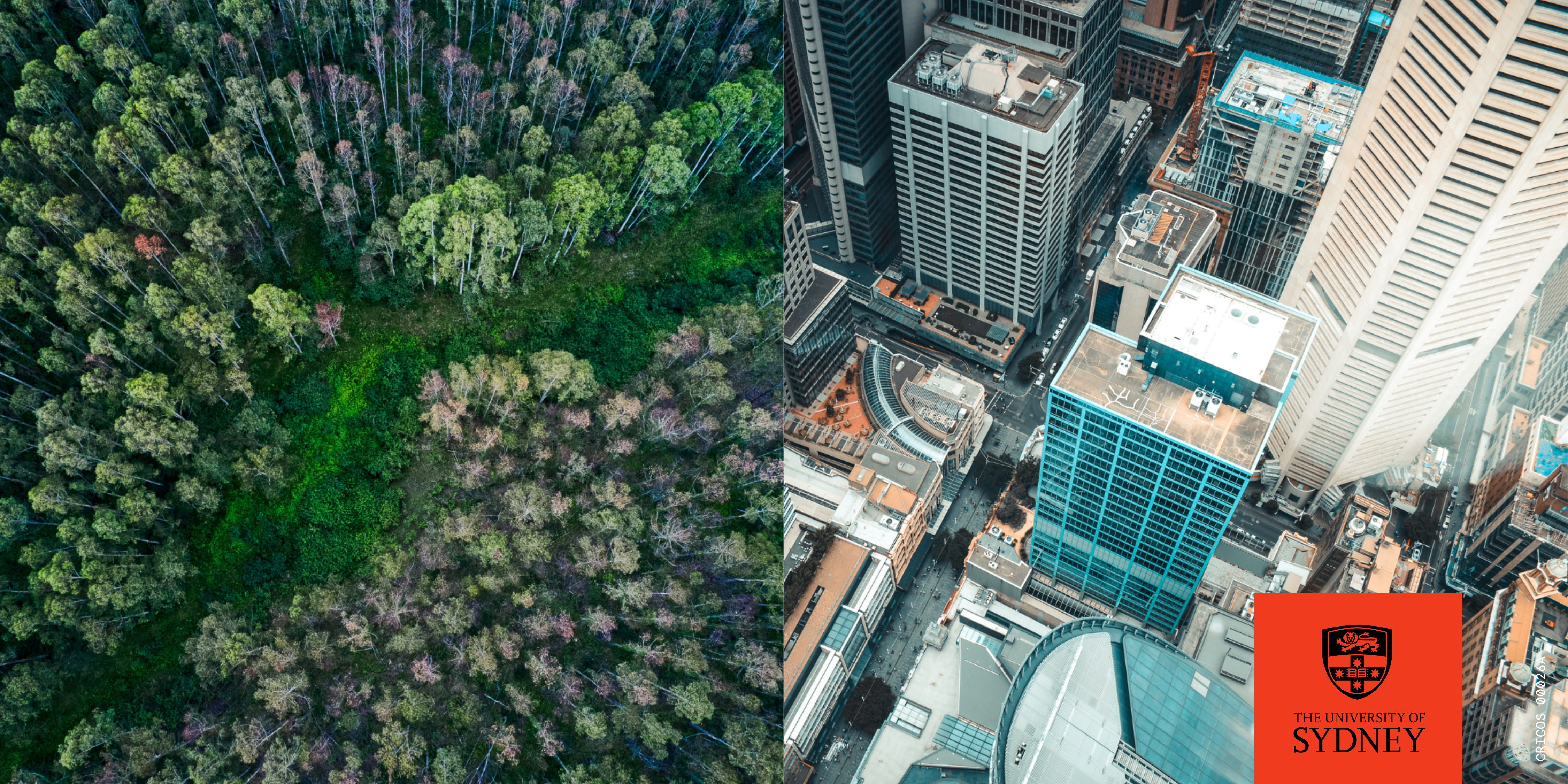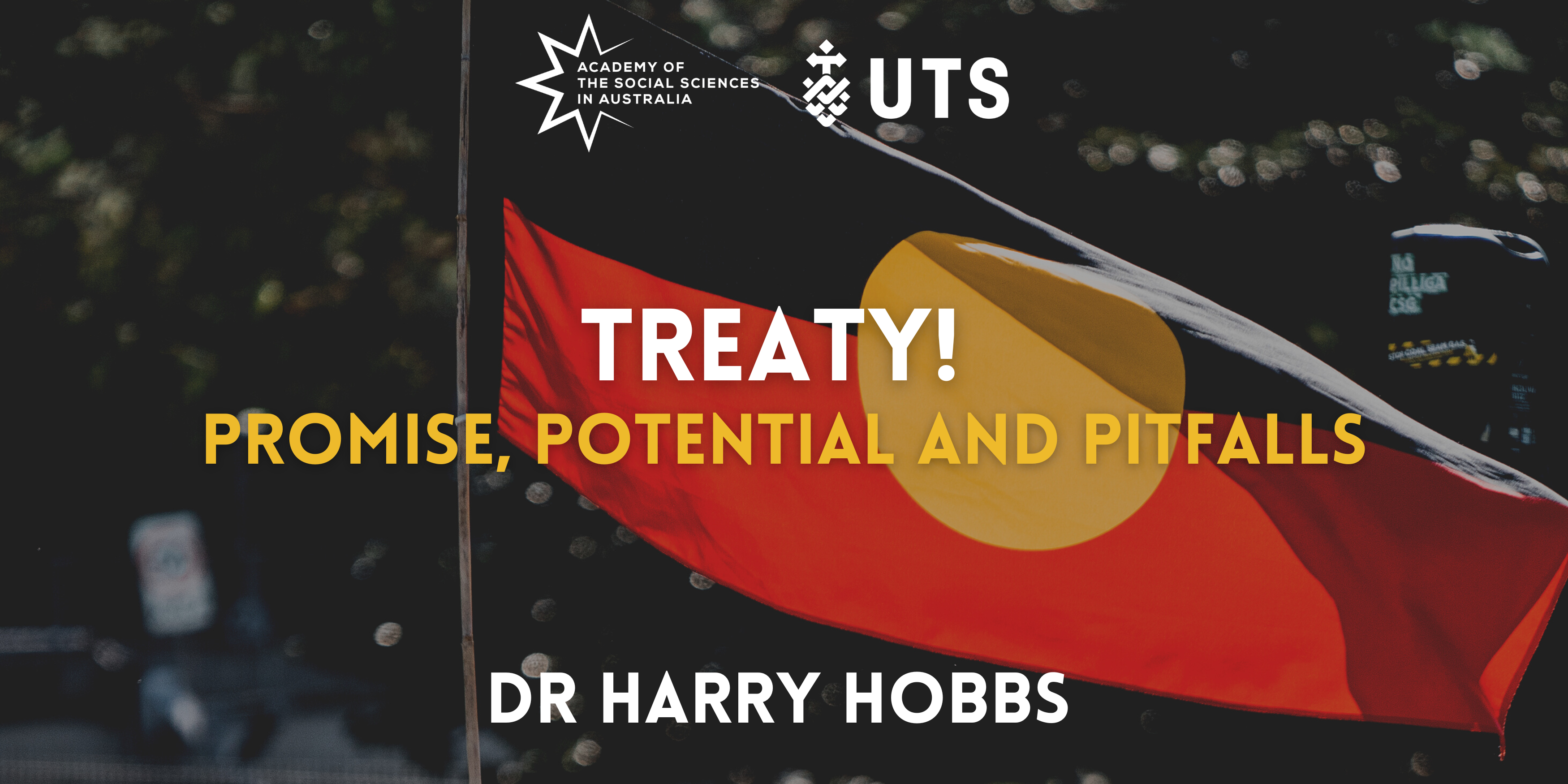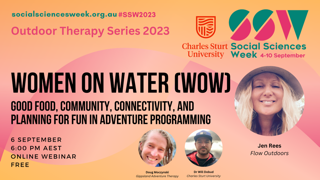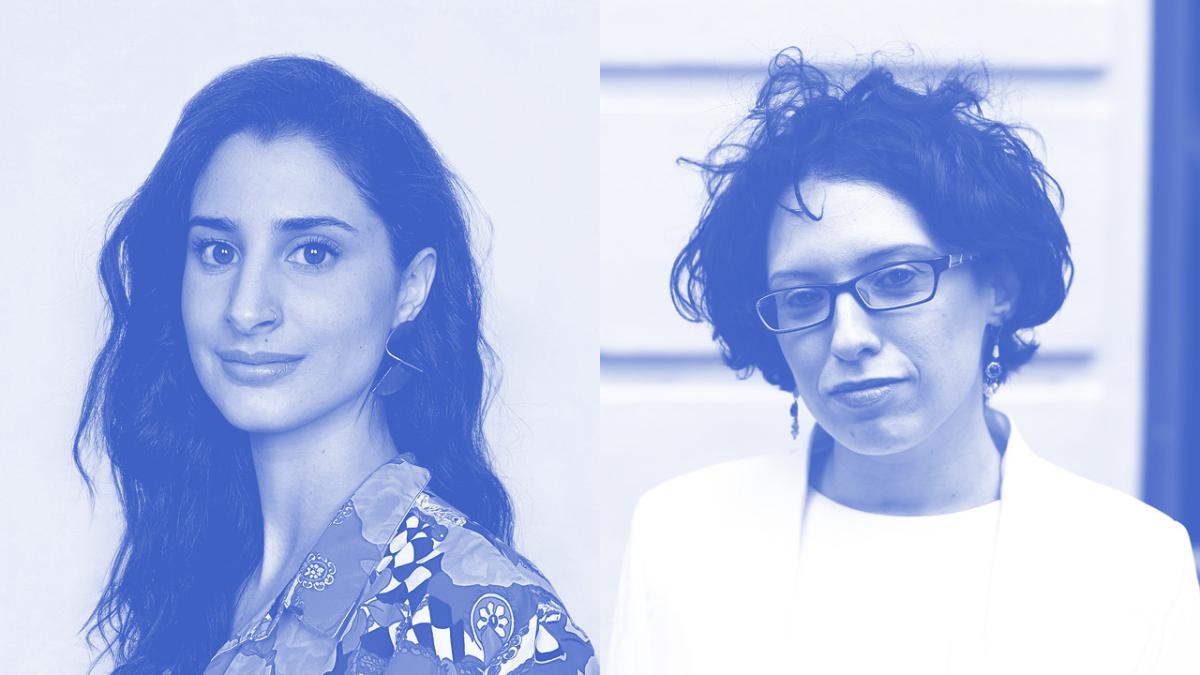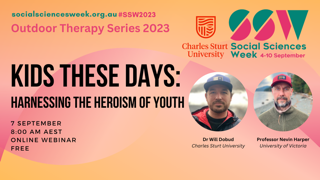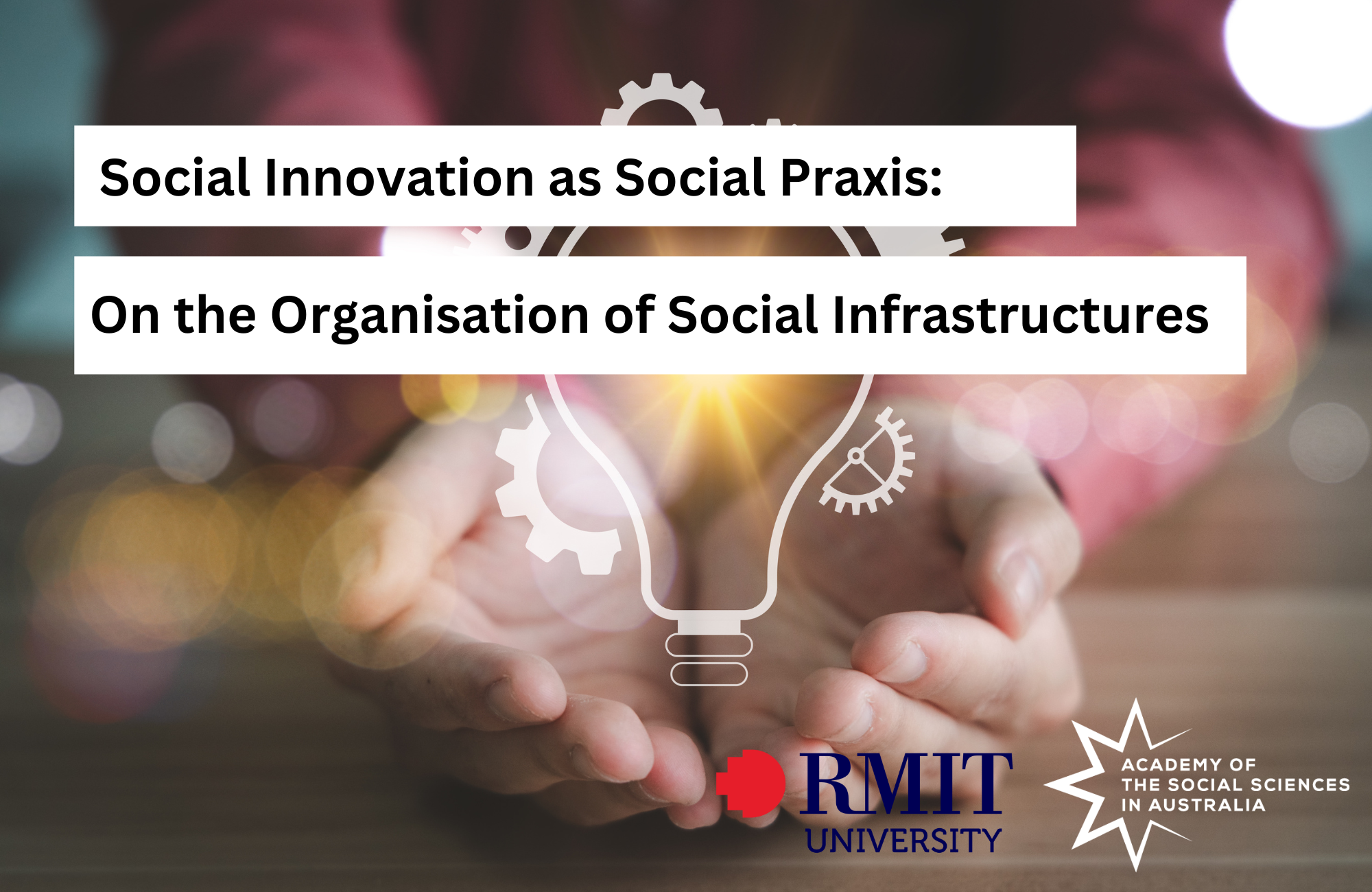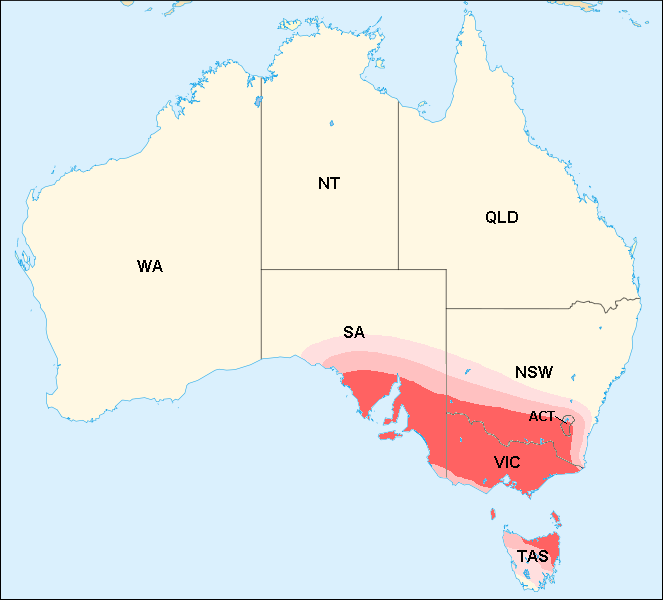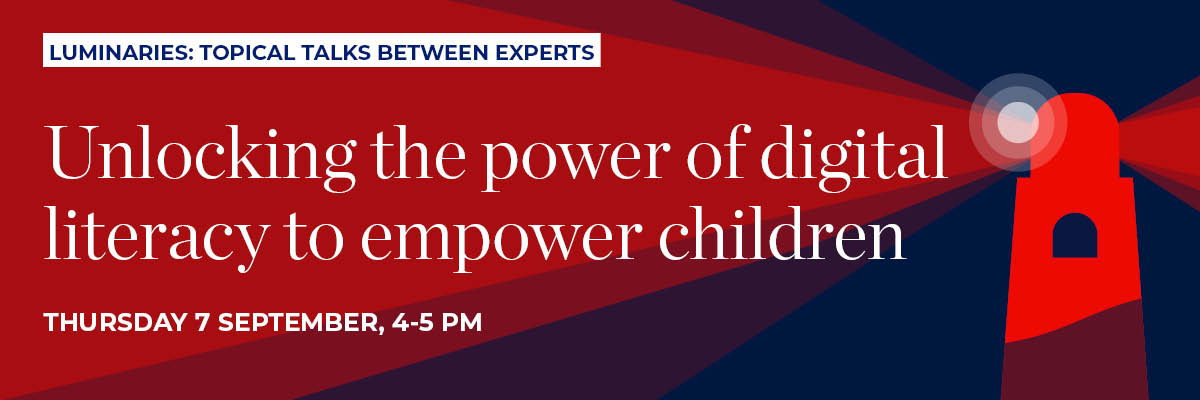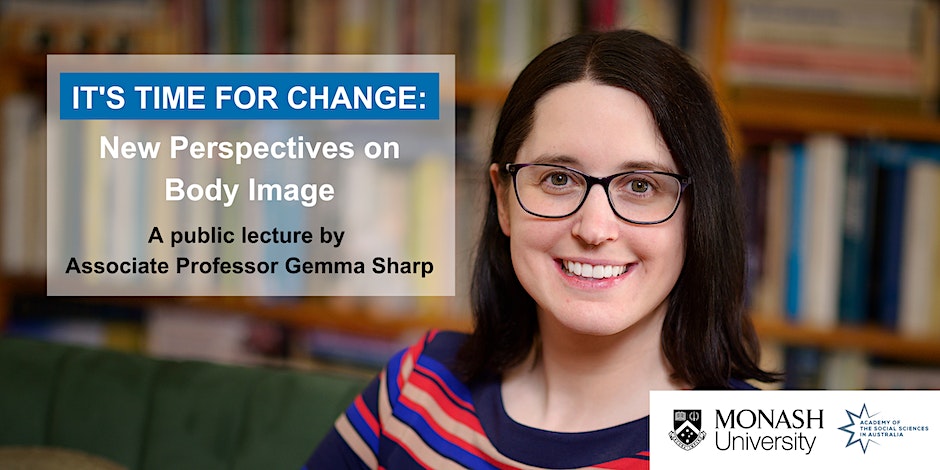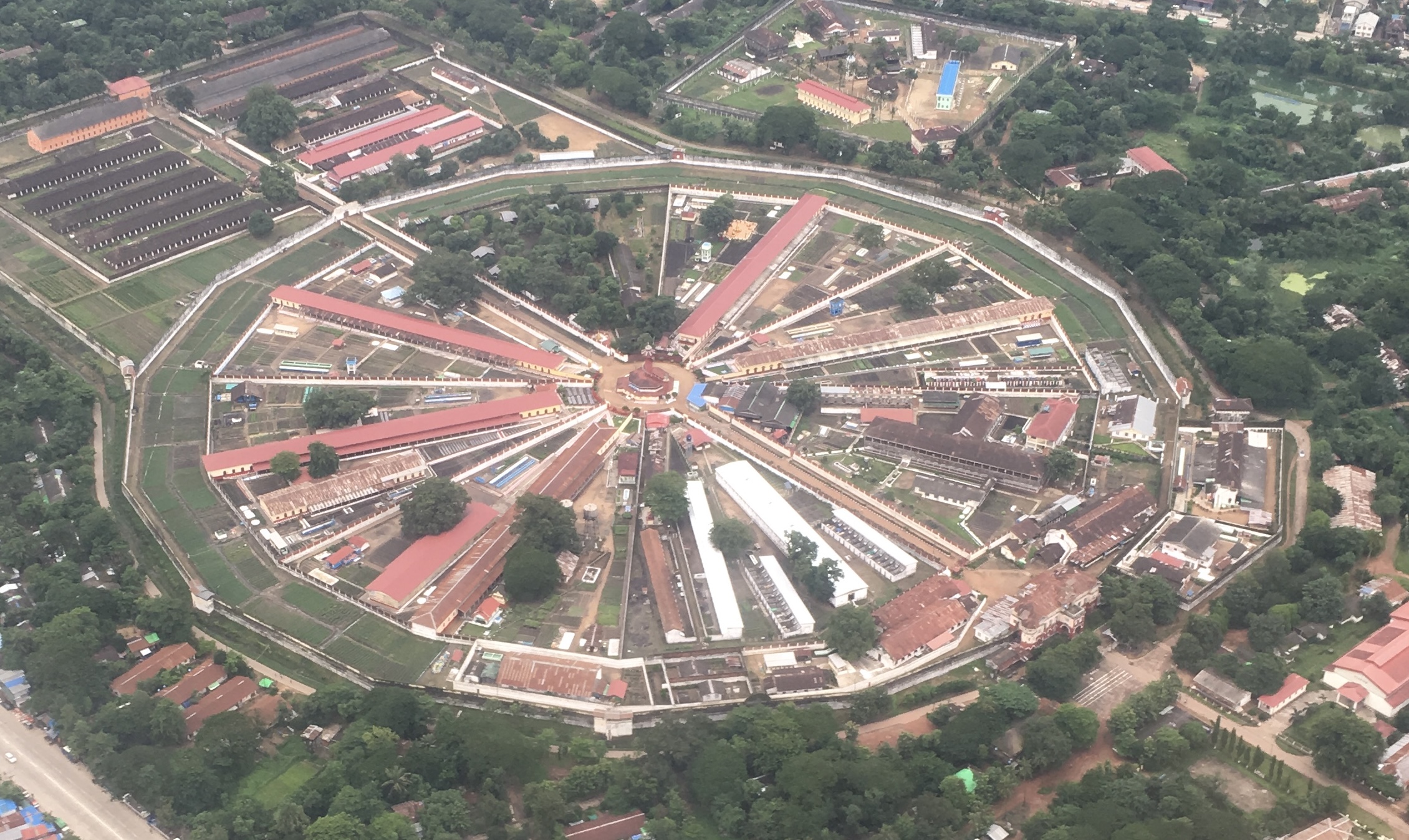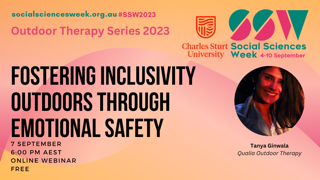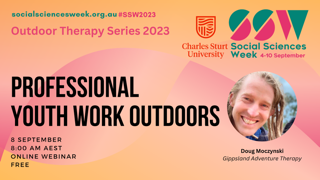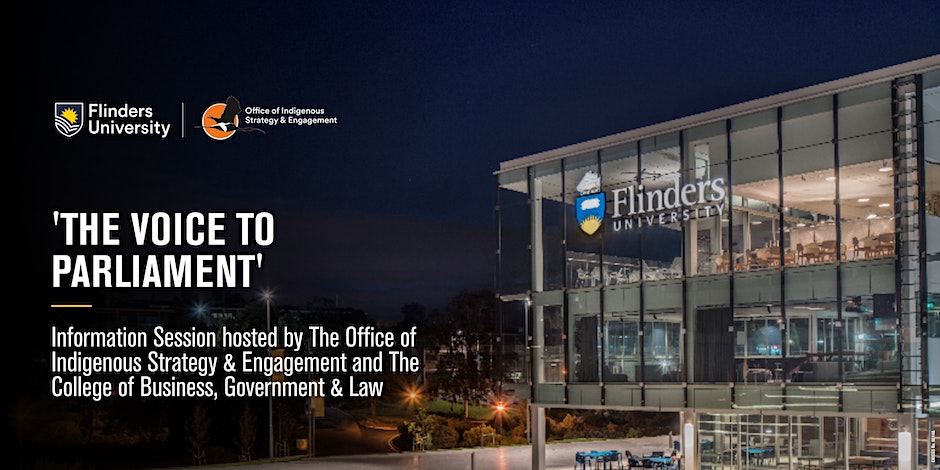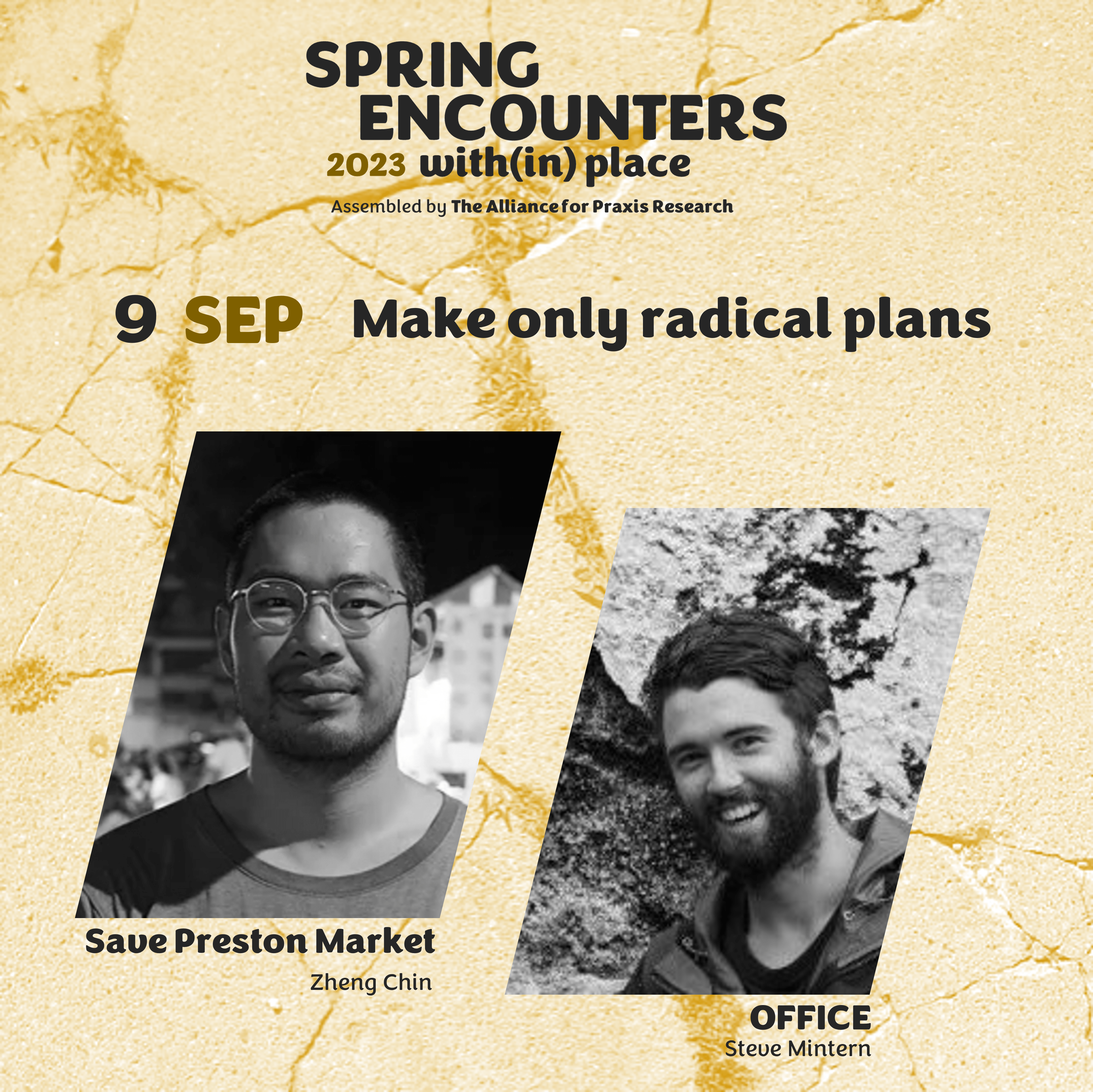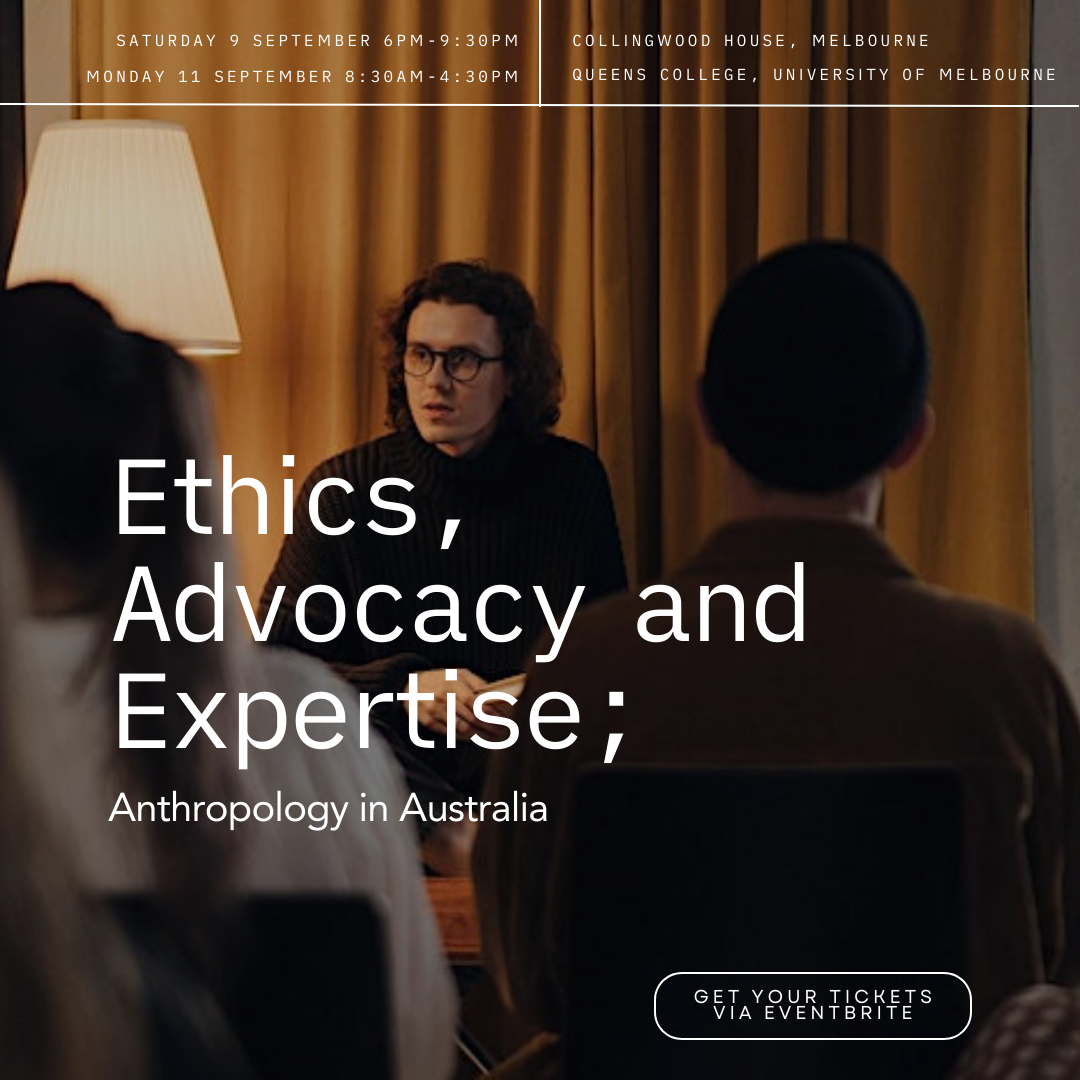Events
- Events
- Public Talk or Lecture
Women’s eSafety by Design
Level 3, AMDC Building, Swinburne University, 469-477 Burwood Rd, Hawthorn 469-477 Burwood Road, HawthornThe Palestinian Catastrophe
The Great Hall, Quadrangle (A14), The University of Sydney, University Place.Wealth And Giving In Australia: An Examination Of The Evidence And Policy Implications
The University of Western Australia, Business School Hackett Drive, Perth16th Annual Wheelwright Lecture, ‘Not Going Away: First People and the Australian Economy’
Lecture Theatre 200, Social Sciences Building (A02), The University of Sydney, Science RoadNavigating Two Worlds
Io Myers Studio, Esme Timbery Creative Practice Lab, UNSW Kensington UNSW Sydney, High St, Kensington, SydneyWealth And Giving In Australia: An Examination Of The Evidence And Policy Implications
The University of Western Australia, Business School Hackett Drive, PerthLobbying and Agenda Setting: Whose Interests are Served, How and Why?
Room 650, Social Sciences Building, University of Sydney Science Road, CamperdownWhat is heat? Measuring heat and mapping heat stress – an anthropological account.
Deakin Waterfront 1 Gheringhap Street, MelbourneIt’s Time for Change – New Perspectives on Body Image
Lecture Theatre, The Betty & John Laidlaw AO Alfred Innovation & Education Hub, Alfred Hospital Lecture Theatre, The Betty & John Laidlaw AO Alfred Innovation & Education Hub, Alfred Hospital 75 Commercial Road Melbourne, VIC 3004Make only radical plans – 2023 Spring Encounters: with(in) place
Bell Train Station (meeting point) Bell St / Garnet St, PrestonEthics, Advocacy and Expertise; Anthropology in Australia
Collingwood House 101 Johnson Street, Collingwood- No events scheduled for 9 September 2023.
Week of Events
Outdoor Therapies: Pathways for Change and the Trail Ahead
Outdoor Therapies: Pathways for Change and the Trail Ahead
Join Dr Will Dobud to discuss recent updates in adventure and outdoor therapy research. Will describes evolutions of how we conceptaulise practice, namely around pathways client’s experience for change – through success and mastery, shared experiences, and hope for a better future. Attendees will examine what works, and more critically, what doesn’t in outdoor therapy practice. Register your attendance here: https://www.eventbrite.com.au/e/outdoor-therapies-pathways-for-change-and-the-trail-ahead-w-dr-will-dobud-tickets-695873555537?aff=oddtdtcreator
Transformative Justice and Peace in Africa
Transformative Justice and Peace in Africa
Join us for one or both of two online seminars exploring transformative justice and peace on the African continent. Session 1: Transformative Justice and the African Union: Unsettling the Dominant Discourse and Practice of Transitional Justice 4 September, 1-2 pm Online only Speaker: Dr Wendy Lambourne, Senior Lecturer in Peace and Conflict Studies, Discipline of Sociology and Criminology, University of Sydney Transitional justice as a field of practice has become standardised around four ‘essential and complementary’ key pillars derived from the Joinet principles against impunity: criminal justice, truth-seeking, reparations and guarantees of non-recurrence/institutional reform. These four key pillars were defined by the United Nations in 2010 as central to supporting transitional justice in countries seeking to build peace at the same time as addressing the legacies of mass human rights violations. I have argued that the imposition of these four pillars as the only model of transitional justice not only undermines the principles of local ownership and contextualisation, it is also incompatible with a process of transformative justice and the ultimate goals of peace and reconciliation. The African Union has subsequently developed a Transitional Justice Policy and Framework for the region that takes a broader, more flexible and localised perspective which is […]
Understanding and Addressing Everyday Sexisms in Australian Universities
Understanding and Addressing Everyday Sexisms in Australian Universities
This presentation reports on findings from a large-scale survey that is part of an Australian government funded project entitled, Understanding and Addressing Everyday Sexisms in Australian Universities. The project is situated within the context of the negative impact of gender-based discrimination upon the higher education sector in Australia and internationally. Although sexual harassment and overt discriminatory practices receive a great deal of attention within university policy and staff training, this research also shows that significant career damage occurs through an accumulation of ‘everyday sexisms’. Preliminary survey results from academics highlight differential awareness of everyday sexism within the academy. The speaker: Dr Emily Gray is Senior Lecturer Education Studies and Higher Degrees by Research Delegated Authority at RMIT’s School of Education. As a researcher, Emily is interested in questions of gender and sexuality and with how these identity categories are lived and experienced within social institutions. Her key research interests therefore lie with questions related to gender, social justice, student and teacher identity and with wider social justice issues within educational discourse and practice. She also writes on popular culture, public pedagogies and audience studies, online fandom and media and popular culture as pedagogical tools. She is co-founder of #FEAS Feminist […]
Evolving Horizons: AI’s Impact on Research and Education in Information and Communication Studies
Evolving Horizons: AI’s Impact on Research and Education in Information and Communication Studies
For Social Science Week, SICS Radio will be diving into how AI is changing the face of research and education in information and communication studies. Our four contributors are academics directly from the School of Information and Communication Studies and have been exploring this hot topic in recent research studies and publications. Dr Kay Oddone is interested in researching the impact of generative AI on school education; and in particular, the leading role Teacher Librarians might play in designing learning with and about these new platforms and tools. Dr Lizzy Tait is researching the ethical applications of AI and algorithmic literacy as well as the impact of AI on the professional knowledge and skills of LIS practitioners and the implications of these new technologies on the future of the profession. In conversation with students and colleagues, Dr Travis Holland is investigating what role generative AI will have in the future careers of media and communication professionals and how will it impact and change the work of those who already occupy those roles. Dr David Cameron is the Newsroom and Content Coordinator for the Division of People and Culture. With our show title (and some of this very blurb) coming straight from Chat GPT itself, this episode of […]
Transformative Justice and Peace in Africa
Transformative Justice and Peace in Africa
Join us for one or both of two online seminars exploring transformative justice and peace on the African continent. Session 1: Transformative Justice and the African Union: Unsettling the Dominant Discourse and Practice of Transitional Justice 4 September, 1-2 pm Online only Speaker: Dr Wendy Lambourne, Senior Lecturer in Peace and Conflict Studies, Discipline of Sociology and Criminology, University of Sydney Transitional justice as a field of practice has become standardised around four ‘essential and complementary’ key pillars derived from the Joinet principles against impunity: criminal justice, truth-seeking, reparations and guarantees of non-recurrence/institutional reform. These four key pillars were defined by the United Nations in 2010 as central to supporting transitional justice in countries seeking to build peace at the same time as addressing the legacies of mass human rights violations. I have argued that the imposition of these four pillars as the only model of transitional justice not only undermines the principles of local ownership and contextualisation, it is also incompatible with a process of transformative justice and the ultimate goals of peace and reconciliation. The African Union has subsequently developed a Transitional Justice Policy and Framework for the region that takes a broader, more flexible and localised perspective which is […]
Walk and Goat Therapy: Why the Concerns about Counseling Outside are actually Opportunities
Walk and Goat Therapy: Why the Concerns about Counseling Outside are actually Opportunities
Walk and goat therapy is a play on the notion of Walk & Talk, which gained in popularity during COVID-19 restrictions. This session will discuss the risks and opportunities of the non-talk elements of doing therapy outdoors in public spaces. The session is aimed at talk-therapists who wish to begin Walk & Talk sessions. Those who work outdoors may find the discussion interesting as this work often overlooks the wonderful opportunities of simple and uncontrollable encounters outdoors. Goats will be involved. Register to attend here: https://www.eventbrite.com.au/e/walk-and-goat-therapy-w-graham-pringle-tickets-695928289247?aff=oddtdtcreator
The Adventure Therapy Power Couple
The Adventure Therapy Power Couple
Why are Margaret and Josh talking about adventure therapy on their wedding anniversary? Because it was working in an adventure therapy organisation in Alaska where the two met! This session will explore their most important takeaways from a career working therapeutically in the outdoors. Register your attendance here: https://www.eventbrite.com.au/e/the-adventure-therapy-power-couple-tickets-698807771857
“Umibot”: Reflections on Building a Feminist Chatbot on Image-Based Abuse
“Umibot”: Reflections on Building a Feminist Chatbot on Image-Based Abuse
In this presentation, we provide a demo of the “Umibot” chatbot that we developed for victim-survivors, bystanders and perpetrators of image-based abuse. Drawing on a conceptual approach that embraces intersectional feminism and a feminist data ethics of care, we outline some of the challenges we confronted in the design and development of the chatbot. The Speakers: Professor Nicola Henry is an ARC Future Fellow in the Social and Global Studies Centre at RMIT. Her research focuses on the prevalence, nature and impacts of gendered violence, including legal and non-legal responses to addressing and preventing violence. Her current research is focused on technology-facilitated abuse and image-based sexual abuse. Dr Alice Witt is a Research Fellow in the Social and Global Studies Centre at RMIT. Her research investigates the exercise of governing power in the digital age, focusing on the intersections of regulation, technology, and gender. Alice’s research expertise includes content moderation on Instagram and other social media platforms; the governance of and by online platforms; and the regulation of women’s bodies.
Women’s eSafety by Design
Women’s eSafety by Design
Women and girls face abuse, exploitation and threats of violence in a wide range of online spaces. Safety by Design puts women’s safety at the heart of digital technologies, preventing harm before it occurs and holding perpetrators to account. Join in a conversation envisioning a world of online safety and network with the eSafety Commissioner,Julie Inman-Grant, Swinburne researchers and Swinburne partner organisations working to end all forms of violence against women and children. The event will be hosted by: Dr Rachael Burgin, Senior Lecturer in School of Business, Law and Entrepreneurship and CEO of Rape and Sexual Assault Research and Advocacy (RASARA) Professor Kay Cook, Associate Dean of Research in the School of Social Sciences, Media, Film and Education Event highlights The event will commence with a keynote speech delivered by eSafety Commissioner, Julie Inman-Grant. This will be followed by an engaging panel discussion involving Swinburne researchers and collaborating partner organisations Networking drinks and canapés About the speaker Julie Inman Grant is Australia’s eSafety Commissioner. In this role, Julie leads the world’s first government regulatory agency committed to keeping its citizens safer online. Julie has extensive experience in the non-profit and government sectors and spent two decades working in senior public policy and safety roles […]
The Palestinian Catastrophe
The Palestinian Catastrophe
Presented by Conversation at the Crossroads in association with the School of Social and Political Sciences, University of Sydney. The Palestinian catastrophe, known as the Nakba, refers to the devastation of the Palestinian homeland in 1948, and with it the displacement of the majority of Palestinian Arabs. The Catastrophe did not end in 1948. 75 years later Palestinian lands remain under occupation. As the dramatic use of military force in recent weeks shows, violence, discrimination and displacement remain the lot of the Palestinians. What is a principled response? Which way for a just peace? What constructive initiatives can Australia and other governments take? What of the UN? Is civil society everywhere ready to assume its responsibilities? The peace of the region and the world beyond hangs in the balance. Keynote Address: The Hon Bob Carr, former Foreign Minister for Australia and NSW’s longest continuously serving premier, is Industry Professor (Business and Climate Change) at University of Technology Sydney (UTS). He previously headed the Australia-China Relations Institute at UTS as Director and Professor of International Relations. Professor Carr is Honorary Professor at Beijing Foreign Studies University; recipient of the RSIS Distinguished Visiting Fellowship from Singapore’s Nanyang Technological University and the Fulbright Distinguished […]
Paddleboarding in Your 90s: Outdoor Therapy with Older People
Paddleboarding in Your 90s: Outdoor Therapy with Older People
Who says adventures in therapy are only for the young? Social worker and occupational therapist Unda Avota from Adventure Therapy Latvia proved otherwise in her recent work involving horseback riding, boating, hiking, and ropes courses with senior populations. This workshop will examine some of the lessons learned from working with older people in the outdoors. Register your attendance here: https://www.eventbrite.com.au/e/paddleboarding-in-your-90s-outdoor-therapy-with-older-people-tickets-695935510847?aff=oddtdtcreator
Scanning Adventure & Outdoor Therapy Education, Professionalism, and Practice
Scanning Adventure & Outdoor Therapy Education, Professionalism, and Practice
This presentation will cover recent research from a team of international adventure therapy practitioners focused on pathways into adventure and outdoor therapy. The large scale study found interesting patterns and areas for future research and focus, which were put to the test over the past year as adventure therapy scholars travelled internationally to visit universities in attempts to bring adventure to higher education. Attendees will discuss implications for future adventure therapy education and professional development. Register your attendance here: https://www.eventbrite.com.au/e/scanning-adventure-therapy-education-professionalism-and-practice-tickets-695942662237?aff=oddtdtcreator
Wealth And Giving In Australia: An Examination Of The Evidence And Policy Implications
Wealth And Giving In Australia: An Examination Of The Evidence And Policy Implications
This presentation from Professor Paul Flatau (Director, Centre for Social Impact, University of Western Australia) will examine trends in the distribution of income and wealth in Australia including by high net wealth and ultra-high net wealth individuals and philanthropic giving of Australians and the potential for giving to rise to achieve positive social impact. The presentation will explore the rate of tax-deductible donations in Australia, and giving among the wealthiest Australians. Overall, Australia is one of the world’s richest nations, and the wealthiest Australians are currently experiencing unprecedented growth in their fortunes. However, Australia’s giving record remains relatively low compared with other wealthy countries. There is untapped potential that exists to better fund the not-for-profit sector. The presentation is organised by the Economic Society of Australia (Western Australia)
Public Lecture: The Superrich, Digital Technologies and the Politics of Exit with Roger Burrows
Public Lecture: The Superrich, Digital Technologies and the Politics of Exit with Roger Burrows
This lecture offers a critical examination of an ideology - one that has come to be known as Neoreaction (NRx) or, more ominously, The Dark Enlightenment - which has taken hold amongst an influential fraction of the global superrich who have made their money through investments in digital technologies. It is an ideology that holds that democracy is now a fetter of technological progress and needs to be replaced with a new political system that splits the world into a patchwork of competing territories (‘Gov-Corps’), each headed by a CEO or a monarch. Citizens would no longer have any ‘voice’ but would be free to ‘exit’ from any regime that they found to be unaligned with their preferences; there would be a free market in modes of governance. The paper examines the activities and investments of tech entrepreneurs such as Peter Thiel and Patri Friedman who are widely identified as prime movers in the development of NRx ideas. It also considers the influence of alt-right thinkers such as Nick Land and Curtis Yarvin who are often credited with providing a philosophical basis for the position. The lecture concludes that the ideology is one that operates largely without the traditional infrastructures […]
16th Annual Wheelwright Lecture, ‘Not Going Away: First People and the Australian Economy’
16th Annual Wheelwright Lecture, ‘Not Going Away: First People and the Australian Economy’
The 16th Annual E.L. ‘Ted’ Wheelwright Memorial Lecture The annual E.L. ‘Ted’ Wheelwright Memorial Lecture is held to commemorate the pioneering role that Ted Wheelwright played in developing studies in Political Economy in Australia. Not Going Away: First People and the Australian Economy Speaker: Professor Heidi Norman Over the last 50 years there has commenced a land titling revolution. Indigenous peoples have recognised land interests over more than half the continent, nearly four million square kilometres, with more under claim. Estimates suggests that Indigenous peoples hold exclusive possession native title and fee simple to around 26% of Australia’s landmass. When non-exclusive native title is included, that number rises to 54% of the country covering National parks, conservation areas, and vast expanses of the continent. The Aboriginal land estate is critical in the response to climate change and the energy transition currently underway will transform land-use patterns across many parts of regional Australia. While the risk of exclusion for Indigenous peoples is significant, opportunities that will come with meaningful participation are enormous. My research shows that Indigenous land holders want to address climate change in ways that support their ambitions to generate prosperity and rebuild nations and economies that align with Indigenous values. […]
Treaty! Promise, potential and pitfalls
Treaty! Promise, potential and pitfalls
Join us for this special event, featuring the Paul Bourke Award Winner for Early Career Research, Dr Harry Hobbs as he explores modern treaty-making between Indigenous peoples and governments in Australia. This event will add context to the upcoming referendum, and allow the audience to question whether Australia should go down the treaty path; a path that could lead to political settlements that empower Aboriginal and Torres Strait Islander peoples and address the injustices at the heart of the Australian state. Please submit your questions prior to event at events@uts.edu.au Wed 6th Sep 2023, 5:30 pm - 7:00 pm AEST UTS Great Hall
Women on Water (WOW): Good Food, Community, Connectivity, and Planning for Fun in Adventure Programming
Women on Water (WOW): Good Food, Community, Connectivity, and Planning for Fun in Adventure Programming
Fresh moving water, good food, laughter, and a sense of community. This is exactly what Jen Rees brings to her work with Flow Outdoors. In this interactive presentation, Jen’s friends Doug Moczynski and Will Dobud facilitate a Q&A with Jen to learn more about her approach to fostering connectivity with the adventurous women she gets to paddle with. Attendees are provided ideas for adventure-based planning that gets the most from individuals and groups in wild places. Register your attendance here: https://www.eventbrite.com.au/e/women-on-water-wow-with-jen-rees-founder-of-flow-outdoors-tickets-695948579937?aff=oddtdtcreator
Navigating Two Worlds
Navigating Two Worlds
Lamisse Hamouda | Lana Tatour In 2018 Egyptian-Australian writer Lamisse Hamouda had moved to Egypt to study when her life was turned upside down. Her father Hazem, on his way to visit her, was arrested by authorities, accused of sympathising with a terrorist organisation, and sent to prison without charge or evidence for 433 days. In an intimate evening of conversation with UNSW Middle East expert Lana Tatour, delve into Lamisse's new book The Shape of Dust, and her experience fighting against the Egyptian prison system as an Australian citizen. Together they’ll unpack what support the Australian Government provides dual citizens abroad (surprisingly minimal), what cultural identity means for individuals stuck between two cultural worlds, and how trauma can fragment memory and bring unexpected challenges to the writing process. This event is presented by the UNSW Centre for Ideas.
Wealth And Giving In Australia: An Examination Of The Evidence And Policy Implications
Wealth And Giving In Australia: An Examination Of The Evidence And Policy Implications
This presentation from Professor Paul Flatau (Director, Centre for Social Impact, University of Western Australia) will examine trends in the distribution of income and wealth in Australia including by high net wealth and ultra-high net wealth individuals and philanthropic giving of Australians and the potential for giving to rise to achieve positive social impact. The presentation will explore the rate of tax-deductible donations in Australia, and giving among the wealthiest Australians. Overall, Australia is one of the world’s richest nations, and the wealthiest Australians are currently experiencing unprecedented growth in their fortunes. However, Australia’s giving record remains relatively low compared with other wealthy countries. There is untapped potential that exists to better fund the not-for-profit sector. The presentation is organised by the Economic Society of Australia (Western Australia)
Kids These Days: Harnessing the Heroism of Youth
Kids These Days: Harnessing the Heroism of Youth
Since 2010, we’ve experienced a 40% increase in youth mental health diagnoses. In that same decade, prescriptions of psychiatric medications increased by 50%. With suicide becoming the number one cause of death for young people today and half of the population now predicted to experience a mental disorder during their adolescence, this crisis should be a central concern in western society. Dr Dobud and Professor Harper sought to find answers as to what is driving this reality, and they asked the experts – the therapists, educators, doctors, scientists, and parenting experts – what can we do to improve youth wellbeing? Leaning on their 50 years of collective experience working with at-risk youth, this presentation explores the preliminary lessons learnt from talking to an international cohort of experts in parenting, mental health, and youth development. Register your attendance here: https://www.eventbrite.com.au/e/kids-these-days-harnessing-the-heroism-of-youth-tickets-695951749417?aff=oddtdtcreator
Social Innovation as Social Praxis: On the Organisation of Social Infrastructures
Social Innovation as Social Praxis: On the Organisation of Social Infrastructures
Social innovation has become a key theme of recent discussions about the most effective ways of responding to complex health, social and economic problems in cities. Yet much of this discussion emphasises techniques and processes of innovation at the relative expense of more sophisticated understandings of the social. This talk explores how the social sciences may contribute more effectively to discussions of social innovation praxis in Australia by contributing key insights into the ways innovations transform the socius. I emphasise ideas of place, counter/publics and atmospheres to explore the ways social innovation may support more ‘liveable lives’ in Australian cities. About the speaker: Cameron Duff is an Associate Professor at the Centre for Organisations and Social Change in the College of Business and Law at RMIT University in Melbourne. Duff’s recent program of research explores the role of social innovation in responding to complex health and social problems in cities. This is a RMIT Engaging for Impact event and is supported by the RMIT Enabling Impact Platforms, College of Design and Social Context, College of Business and Law, School of Global, Urban and Social Studies, and RMIT Culture.
Lobbying and Agenda Setting: Whose Interests are Served, How and Why?
Lobbying and Agenda Setting: Whose Interests are Served, How and Why?
Lobbying and advising the government are part of the democratic process. Sometimes the interests being served are clear, yet at others they are hidden. Sometimes stories are told to make the outcomes desired easier to understand, and more likely, while at others the narrative serves to shroud the real outcomes desired and undermine democratic processes. In this presentation, the cases of consultants advising governments and the OECD on tax avoidance and LGBTQ+ lobbying are used to tease out some of these tensions. In the case of the former, the role of the Big Four (PwC, EY, KPMG and Deloitte) is used to illustrate how interests potentially undermine desirable outcomes. In the case of the latter, lobbyists and lobbying were essential in driving desirable change. Moderator: Professor Gaby Ramia Speakers: Associate Professor John Mikler: John is an Associate Professor in the Discipline of Government and International Relations. He researches corporations' relations with states, civil society and international organisations, as well as how they are political actors in their own right. His recent books include The Political Power of Global Corporations (Polity 2018); MNCs in Global Politics: Pathways of Influence (co-edited with Karsten Ronit, Edward Elgar 2020); and Capitalism for All: Realising its Liberal […]
What is heat? Measuring heat and mapping heat stress – an anthropological account.
What is heat? Measuring heat and mapping heat stress – an anthropological account.
Deakin Anthropology Seminar Series - Dr Catherine Trundle: "What is heat? Measuring heat and mapping heat stress – an anthropological account." ABSTRACT In a warming world our ability to understand, categorise and identify patterns of heat becomes more pressing. But what is heat, and how are the thresholds between healthy and comfortable heat, and dangerous, uncomfortable heat constituted? In this talk I’ll explore the metrics used globally, nationally, and locally to determine heat stress and the risks heat poses to human health. Heat, I will argue, emerges as a variegated object—and one of increasing political and social attention—through a wide range of epistemic practices. These range from the IPCC (Intergovernmental Panel on Climate Change) metrics for communicating certainty in climate science, to the WBGT (wet-bulb globe temperature) index, from hospital admission statistics in the Northern Territory, to global thermal comfort metrics. They include the Victorian heatwave warning system, WorkSafe Victoria workplace protocols, the thermal imaging of streets in Inner Melbourne, and maps of canopy scarcity in Melbourne’s western suburbs. Heat, I will argue, is becoming both more certain and more knowable. At the same time, these diverse metrics open and foreclose opportunities to understand the social and political causes of […]
UOW Luminaries: Unlocking the power of digital literacy to empower children
UOW Luminaries: Unlocking the power of digital literacy to empower children
Digital literacy for children is complex; even for our youngest children. The ability to use a range of digital technologies, to critically engage with those technologies, and the texts they offer is important. But so too is developing children’s capacities to react and respond to the digital culture within which they operate. Consider the scenarios; While playing an online game, a child is invited to network with an unfamiliar person. While researching for a school project, a child comes across inaccurate information. A photo is shared via social media; the child has not consented for it to be shared and becomes annoyed when they see it. Drawing from interdisciplinary perspectives the panel will consider the scenarios as they work to embrace the fluidity of the digital age as children use technology in ways that are developmentally and contextually appropriate, literacy rich, and safe. When: Thursday, 7 September, 4-5 pm AEST Where: Online via Zoom - Zoom link to join the webinar will be emailed after registration Panellists: Professor Lisa Kervin is Professor of Education in the Faculty of the Arts, Social Sciences and Humanities at the University of Wollongong (UOW), where she is also Director of Early Start Research. Associate Professor Jessica Mantei is Deputy Head […]
It’s Time for Change – New Perspectives on Body Image
It’s Time for Change – New Perspectives on Body Image
Body image concerns are unfortunately very common. More than 43 percent of people in Australia are dissatisfied with their physical appearance. Negative body image can lead to extreme dieting, excessive exercise, the pursuit of risky cosmetic surgery, as well as overall poor self-esteem. Body image concerns are also one of the strongest risk factors for the development of eating disorders, which impact more than 1 million Australians of all ages, genders and backgrounds. Unfortunately, less than one in four people ever receive treatment. Monash University’s Associate Professor Gemma Sharp will speak on her innovative strategies to use the latest technology to address body image concerns and eating disorders. This includes her pioneering use of conversational artificial intelligence to provide thousands of people with the help they need to feel better about their bodies. She will also share how our mobile phones can be a useful tool to both ‘sense’ when we are experiencing body image distress from our app usage, and deliver highly personalised support whenever and wherever we need it - essentially personalised medicine delivered through your phone. About the Speaker Associate Professor Gemma Sharp is a National Health and Medical Research Foundation Emerging Leadership Fellow at Monash University, and Research […]
Held Hostage: National values, diplomacy and friendship
Held Hostage: National values, diplomacy and friendship
The 2023 Plimsoll Lecture by Australian economist, and political prisoner Dr Sean Turnell. Even before Sean Turnell spent 650 days of wrongful imprisonment in Myanmar, his story was remarkable. From humble working-class beginnings in the suburbs of Sydney, Sean followed his humanitarian heart and become a world-class expert on the Burmese economy, believing that the right economic policies could provide prosperity for its suffering people. It was this reputation and philosophy that led him to becoming the economic advisor of Myanmar’s democratically elected leader, Aung San Suu Kyi. Three days after Suu Kyi was deposed in a military coup and arrested, Sean was placed in solitary confinement by armed military police under fabricated charges. During his long imprisonment in Myanmar, friends, fellow economists, institutions, and governments from around the world rallied together in a remarkable campaign for his release. Join Dr Sean Turnell for the 2023 Plimsoll lecture, and listen to his extraordinary story of hope, resilience, and the power of friends. What unfolds in this conversation will be more than just personal reflections, but also deep insights into the dynamics of international relations, the role of civil society, and the power of unity in promoting democratic values worldwide.
Fostering Inclusivity Outdoors through Emotional Safety
Fostering Inclusivity Outdoors through Emotional Safety
For many, outdoor therapy approaches focus on scaling the most dangerous climb, summiting the largest mountain, or surviving on little means in remote settings. What if there is another way to make the outdoors count through emotional safety and inclusivity? Tanya Ginwala is a psychologist, outdoor facilitator, and adventure and nature-based therapist. In this presentation, Tanya brings her passion for facilitating therapeutic nature connection and adventure experiences that focus on physical, social and emotional safety. Her practice is informed by narrative therapy, applied Mahayana Buddhism, somatic trauma healing approaches and the field of experiential and outdoor education. Tanya is the India representative in the International Adventure Therapy Committee. In her free time, Tanya enjoys spending time in the pine forests by her home in Dharamshala with her dog Ziggy, reading, napping in the sun and discovering new music. Register your attendance here: https://www.eventbrite.com.au/e/fostering-inclusivity-outdoors-through-emotional-safety-w-tanya-ginwala-tickets-695975500457?aff=oddtdtcreator
Class Inequality in Australia, in Academia and Beyond
Class Inequality in Australia, in Academia and Beyond
Part one (35 mins talk; 15 mins Q&A): Presentation: Class in Australia, by Associate Professor Steven Threadgold, University of Newcastle and Associate Professor Jessica Gerrard, University of Melbourne. Part two (approx 30 mins): Panel Q&A: Intersectional perspectives on being (working) classed and in the Australian Academy Panel members: Associate Professor Emma Gavin, Faculty of Education, Monash University Dr Shannon Kilmartin-Lynch, School of Engineering, RMIT University Dr Sherene Idriss, Alfred Deakin Institute, Deakin University Dr Sarah Attfield, School of Communication, University of Technology Sydney Dr Gene Flenady, Department of Philosophy, Monash University
Professional Youth Work Outdoors
Professional Youth Work Outdoors
What does it mean to provide professional youth work outdoors? Is it simply having fun outside or is there more to it? In this discussion, founder of Gippsland Adventure Therapy, Doug Moczynski, presents on how youth workers can operationalise “professional youth work” - whatever that is - in the outdoors. Doug will discuss physical and emotional safety, how to improve engagement to foster better therapeutic outcomes, and strategies for remaining professionally apt at handling disclosures and other complicating factors. Along with Will, Doug will explore what is considered a professional: does particular education warrant him identifying as one? Are there quantifiable differences in outcomes, safety, accountability? Since 2020, Doug has run a small private practice in Gippsland working alongside the NDIS, child protection, and other community organisations with youth and families. Register your attendance here: https://www.eventbrite.com.au/e/professional-youth-work-outdoors-w-doug-moczynski-tickets-695983223557?aff=oddtdtcreator
‘Voice to Parliament’ – Online Information Session
‘Voice to Parliament’ – Online Information Session
Hosted by The Office of Indigenous Strategy & Engagement and The College of Business, Government & Law This information session provides an opportunity to listen to our panellists discuss key questions such as , ' What is the voice to parliament?' and 'What are the foremost issues and debates?'. Our Speakers include: Welcome: Prof. Simone Tur, Pro Vice-Chancellor (Indigenous) Political aspects: Assoc. Prof. Rob Manwaring, Associate Professor of Politics and Policy Legal aspects: Dr. Rowan Nicholson, Lecturer in Law Process of Adelaide Regional Dialogue: Dwayne Coulthard, member of the Uluru Dialogue, SA Issues and debate: Dr. Jessica Genauer, Senior Lecturer in International Relations
Make only radical plans – 2023 Spring Encounters: with(in) place
Make only radical plans – 2023 Spring Encounters: with(in) place
“2023 Spring Encounters: with(in) place” is series of activities organised by the Alliance for Praxis Research (APR), composed by artists, researchers and PhD candidates from Monash and RMIT. Spring Encounters provides a platform for researchers, activists and artists to connect in a relaxed setting of informal conversations and action. Its purpose is to break the boundaries of disciplines and institutions, creating cracks for open dialogue and the sprouting of ideas. Our program this year will be hosted in different locations across Melbourne. This year, we've designed these gatherings as a means to nurture our connections with place and, simultaneously, to highlight initiatives that are collaboratively shaping communities across Melbourne. From Preston Market to the Catalyst Social Centre, we hope that by the end of this journey, we will be able to entangle relationships, cultivate care, ground ourselves, and reimagine our work and lives with(in) place. 09 September | Make only radical plans Meeting at Bell station | 10 to 12 pm Facilitated by Zheng Chin (APR/Monash University) + TBA Radical planning questions existing power structures to prioritise social justice, sustainability, and community empowerment. By reimagining urban spaces and engaging in social transformation, radical communities seek to create more equitable and […]
Ethics, Advocacy and Expertise; Anthropology in Australia
Ethics, Advocacy and Expertise; Anthropology in Australia
With a passion to work more collaboratively, Anthroprospective and the Centre for Native Title Anthropology are teaming up to host two engaging events this September during Social Science Week in Melbourne as a way of encouraging social science academics to engage in more authentic dialogue with the broader public. In doing so, we hope that we can create new avenues to promote the applicability and significance of social science to more mainstream audiences. The first event will be held on Saturday September the 9th from 6pm to 9:30pm in Collingwood at 'Collingwood House'. This social networking evening will comprise of two keynote speeches and an engaging Q&A panel centralised around the theme of 'Ethics, Advocacy and Expertise; Anthropology in Australia'. For further information and to book your tickets, please see: https://www.eventbrite.com.au/e/ethics-advocacy-and-expertise-anthropology-in-australia-tickets-645809582847 The second event will be held on Monday September the 11th from 8:30am to 4:30pm at Queens College, The University of Melbourne. In keeping with the theme of 'Ethics, Advocacy and Expertise; Anthropology in Australia', this all-day conference workshop which will provide attendees the opportunity to continue discussions from the previous Saturday night and to delve into a number of stimulating topics from a range of anthropologists. For further information and to register your attendance at this free offering, please see: https://www.eventbrite.com.au/e/ethics-expertise-and-advocacy-one-day-cnta-workshop-tickets-674978086627?aff=erelexpmlt We […]

